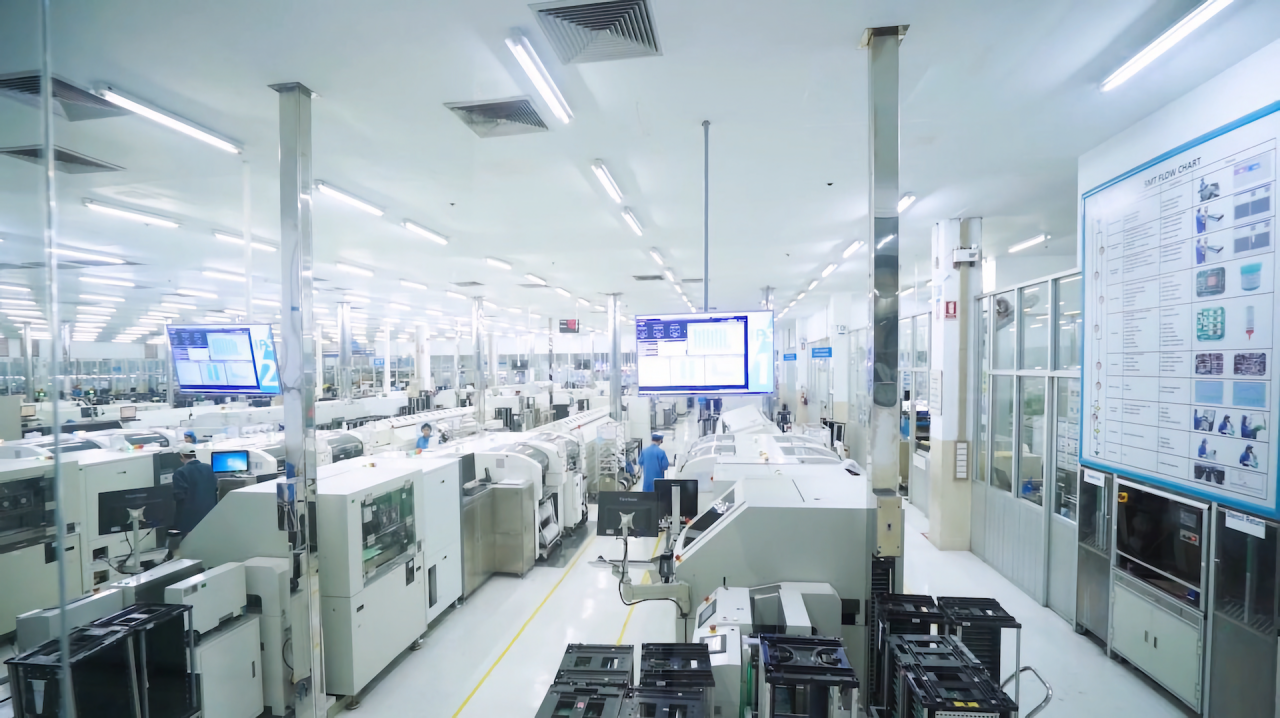
Thailand's Thriving Electronics Industry: A Beacon of Growth and Opportunity
In the heart of Southeast Asia, Thailand's electronics industry has been quietly but steadily growing, transforming the country into a global powerhouse for electronics manufacturing and outsourcing, with a rich history, robust infrastructure, and a proven track record of investment and growth.
A Brief History of Electronics Manufacturing in Thailand
The electronics industry in Thailand has a long and storied history, dating back to the 1960s when the country began to industrialize, with computer hard disk companies like Seagate, Miniscribe, Maxtor, and Western Digital playing significant role in shaping the industry early on.
The Thai government has consistently made significant investments in the high-tech manufacturing sector for many years, spurring innovation and growth in the electronics and computer industries. The country has been able to attract global technology enterprises such as Toshiba, Lenovo, Canon, and HP, leveraging Thailand’s strategic location, skilled workforce, extensive infrastructure, and supportive government policies to establish successful operations in the country, all while realizing significant cost savings.
Fast forward to today, and these early investments have paid off handsomely.
Thailand's Electronics Manufacturing Industry Today
Today, Thailand’s electronics industry is thriving. With a supply chain of over 2,600 companies and nearly 360,000 employees, it is the country's largest manufacturing employer.
The industry has seen consistent revenue growth over the past several years, with electronics exports growing 29% over the past 3 years alone!
In 2021, electronics products were Thailand’s main exported products, amounting to over 42 billion U.S. dollars in value, leading other major product groups such as automotive, food, and machinery and equipment.
Why Companies Choose Thailand
There are several compelling reasons why companies choose to manufacture their electronics products in Thailand:
1. Strategic Location in South East Asia
Thailand is strategically located at the heart of Southeast Asia, making it a gateway to one of the world's most dynamic economic regions. This prime location provides easy access to a vast market with a combined population of over 600 million people. It is well-connected to other major Asian economies, including China, India, and Japan, through extensive road, sea, and air networks. This strategic location allows electronics manufacturers to easily distribute their products to both regional and global markets.
2. Skilled Workforce in Electronics and Electronics Manufacturing
Thailand boasts a highly skilled and adaptable workforce, particularly in the field of electronics and electronics manufacturing. The country's strong emphasis on education and vocational training has resulted in a pool of workers who are not only technically proficient but also adaptable to the rapidly evolving needs of the electronics industry. This skilled workforce is a significant asset for electronics manufacturers, enabling them to maintain high standards of quality and efficiency in their operations.
3. Extensive Infrastructure Supporting Electronics and Electronics Manufacturing
Over the years, Thailand has invested heavily in developing a robust infrastructure that supports the needs of the electronics industry. This includes state-of-the-art industrial parks equipped with modern facilities, reliable power supply, and high-speed telecommunications networks. The country also has a well-developed logistics infrastructure, including deep-sea ports, international airports, and an extensive road and rail network, facilitating the swift movement of goods both within the country and to overseas markets.
4. Supportive Government Policies
The Thai government has been highly supportive of the electronics industry, implementing policies that encourage investment and growth in the sector. The Board of Investment (BOI) offers a range of incentives for companies in the electronics sector, including tax breaks, import duty exemptions, and support for research and development activities. The government also provides assistance in sourcing local suppliers and establishing industrial linkages, making it easier for companies to set up and expand their operations in the country.
5. Cost-Effective Operations
One of the key advantages of manufacturing in Thailand is the cost-effectiveness of operations. The country offers competitive labor costs, affordable utilities, and low corporate tax rates, all of which contribute to significant cost savings for electronics manufacturers. Additionally, the availability of local suppliers for various components and raw materials further reduces production costs and lead times. This cost-effectiveness, combined with the high quality of products, makes Thailand an attractive destination for electronics manufacturing.
Conclusion
Thailand's electronics industry, with its long history, robust infrastructure, and a proven track record of investment and growth, continues to be a beacon of growth and opportunity, offering an excellent environment for electronics manufacturing and outsourcing. As the industry continues to grow and evolve, Thailand is well-positioned to remain a global leader in electronics manufacturing.
Pichai Duangtaweesub, the CEO of Forth EMS, one of the leading electronics manufacturers in Thailand, sums up the appeal of Thailand's electronics industry as follows:
"In Thailand, we have moved beyond the old narrative of manufacturing being only about cost savings. Today, it's a strategic choice, driven by our strong capabilities, advanced technology, and commitment to quality.
Thailand's strategic location at the heart of Southeast Asia, coupled with our world-class logistics infrastructure, provides us with a unique advantage, connecting us seamlessly to the global market. Our government's proactive and industry-friendly policies instill long-term confidence in our partners and customers.
Our greatest asset, however, is our people. With a strong emphasis on education, we have cultivated a highly skilled, adaptable, and culturally diverse workforce. This human capital is the backbone of our industry, and driving Forth EMS’ continuous growth.”
VentureOutsource.com EMS MFG market intel and benchmarking
6mo"China will soon account for less than 50% of US imports from low-cost countries in Asia as Western firms shift supply chains out of mainland China", according to Holger Zschäpitz author of 'Schulden ohne Sühne?' This resource page for South East Asia, including Thailand https://ventureoutsource.com/contract-manufacturing/topic/vietnam-and-south-east-asia-contract-electronics-manufacturing-resources-page/
Managing Director & Head of Strategic Advisory Services, Clariti Strategic Advisors
9moYou are right on every point Tom. Thailand is a powerhouse of capability with its highly skilled people and their excellence of service at the center of it.